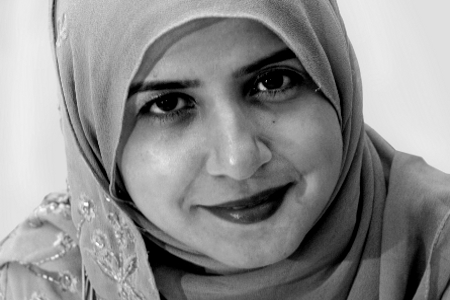
The Fall and Rise of Religion
Issue 57 June 2009
Religion is not important; not in the daily life of almost three quarters of the British public. The French exhibit similar levels of irreligiosity. By contrast, the Muslim populations in both countries say that religion is important to almost 70% of them. Can this vast gulf in the belief of the importance of religion ever be overcome? Will Muslims along with other faith groups follow the wider public into religious oblivion? Or will the believers be able to persuade the public of the value of religion, and if so, how will they do it?
In May 2009, Gallup published the Coexist Index, designed to measure global attitudes toward people from different faith traditions. Spanning 27 countries across 4 continents, the report gave special focus to attitudes and perceptions among Muslims and the general public in France, Germany and the UK about issues of coexistence, integration, values, identity and radicalisation.
Religion is not important in the daily lives of the French and the British, and there is an indication that the general public’s view of religion is that religion itself is not of value. The UK, France and Norway, the three countries that came bottom of in rating the importance of religion in daily life, also showed lower ratings on two related issues: whether ‘religious faiths make a positive contribution to society’ and on the indicator of whether they had ‘learned something positive from a person of another faith’ in the last year. It seems they are becoming less and less respectful and impressed by religion.
There was a time in the near past when it was enough to point to something as condoned or recommended by religion to gain approval and understanding. Now, adding the label ‘religious’ seems a hindrance rather than a positive attribute. No wonder then that Muslims have gained little sympathy when they have stated that they have found certain books, cartoons and other incidences to be offensive. Religion itself no longer carries inherent respect. In fact, there is a palpable fear of religion, particularly visible in the UK where 26% of the public felt that people of different religious practices threatened their way of life.
Muslims, like others to whom religion is important, need to think carefully about how to express their religious values to the wider public, and how to convey how dear those values are to them. At the moment, the methods and language used do not seem to be working, and Muslims see themselves quite differently to how the wider public see them. 82% of British Muslims thought that Muslims were loyal to the UK. That figure fell to 36% amongst the British public. Of course the fear-mongering whipped up in the media and by the far right must take a great deal of blame for this mistrust. They must be held accountable for the constant and lie-laden coverage of Muslims and for whipping up a frenzy of phobia and hatred. What the data also doesn’t indicate is whether this level of mistrust applies to other faith groups too, although my suspicion is it would be at significantly reduced levels, if at all.
Working with the mainstream media, politicians and policy-makers is essential in changing widespread opinion, and reducing this chasm of misunderstanding. However, there are other clues in the research as to how Muslims can make proactive change.
One of them is getting involved in civic society. Muslims polled significantly lower than the general public in France, Germany and the UK on whether volunteering in organisations serving the public was important. Shockingly, in the UK only 24% of Muslims versus 64% of the public felt this was important, the lowest across all three countries. If Muslims don’t invest in the public sphere then on a purely selfish level they will not weave themselves into the fabric of society. But this is not about being selfish: alongside belief in the Creator, a Muslim’s purpose is to serve other human beings and work towards social justice. Showing disregard for involvement in public organisations ought to be anathema to Muslims.
Muslims need to step up fully to the civic engagement and responsibility that are part of their faith heritage. They need to be engaged more in these activities - not just as much as their public counterparts, but more so. This is because they are people to whom religion is a part of daily life; and religion is about making a positive contribution not only to your own daily life, but to the lives of those around you.
Bookmark this |
|
Add to DIGG |
|
Add to del.icio.us |
|
Stumble this |
|
Share on Facebook |
|
Share this |
|
Send to a Friend |
|
Link to this |
|
Printer Friendly |
|
Print in plain text |
|


Comments
0 Comments